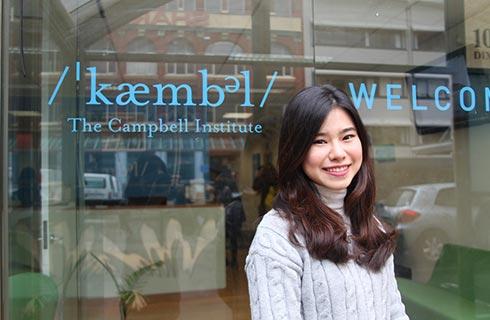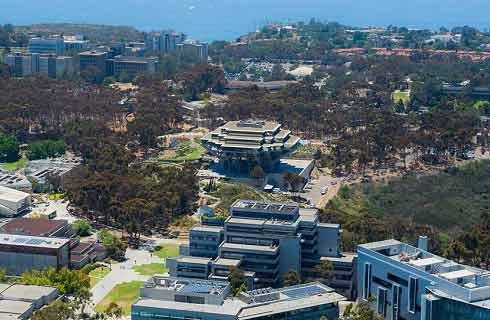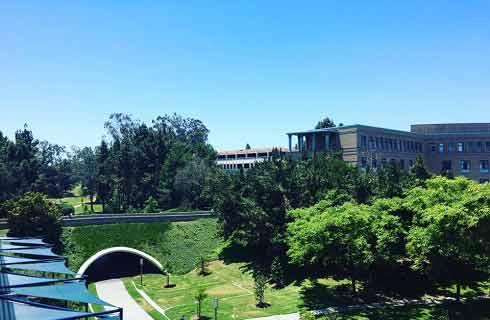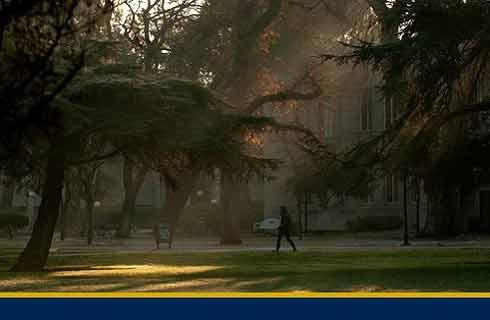电子信息工程理学硕士
Master of Science in Electronic Information Engineering

学历文凭
Masters Degree (Taught)

专业院系
Electronic and Electrical Engineering

开学时间

课程时长

课程学费

国际学生入学条件
IDP—雅思考试联合主办方

雅思考试总分
6.5
- 雅思总分:6.5
- 托福网考总分:88
- 托福笔试总分:570
- 其他语言考试:PTE (Academic) - a minimum score of 63 (with no section score below 59).
CRICOS代码:
申请截止日期: 请与IDP联系 以获取详细信息。
课程简介
We are in the next Industrial revolution and the challenge faced by graduates is to succeed in an age of automation. There is no aspect of modern life that is now not altered by information processing engines. Examples include teaching (online learning and assessment), automotive (driverless cars and electronic control systems), the economy (high speed automated trading), entertainment and shopping (virtual assistants and recommendation engines), health (automated diagnostics and non-invasive body scanning) and the digital humanities. The M.Sc. in Electronic and Information Engineering course is designed for individuals who have a strong academic background in electronic and electrical engineering, computer engineering, or related fields, and who wish to specialise and advance their knowledge in electronic and information engineering.The course is designed for individuals who are interested in pursuing a career in areas such as telecommunications, wireless communications, data communications, computer networks, software engineering, and signal processing. It is also suitable for individuals who are already working in the industry and wish to enhance their skills and knowledge to progress in their career or change their career path. This M.Sc. course can be taken as either over one year as a full-time course or across two to three years part time and consists of taught modules worth 60 ECTS and a project worth 30 ECTS. A specialism in Computational Engineering is available for students selecting at least 15 ECTS from the Computational Engineering strand. M.Sc. candidates complete a substantial project and submit a report which accounts for 30 ECTS.In addition to direct entry to the M.Sc., parallel Postgraduate Certificate (30 ECTS) and Postgraduate Diploma (60 ECTS) entry routes are available for direct separate application. For students who successfully complete the postgraduate certificate and postgraduate diploma, there is an option to rescind these awards and apply to complete an M.Sc. Part-time students may follow the staged award path over three years of study with a possible gap of up to one year in between.
相关申请
 预科
预科 奖学金
奖学金 实习机会
实习机会 在校学习
在校学习 跨境学习
跨境学习 校园授课-线上开始
校园授课-线上开始 在线/远程学习
在线/远程学习
开学时间&学费
学费信息仅供参考,请与IDP联系以获取详细信息
| 开学时间 | 时长 | 学费 | 地点 |
|---|
学校排名

世界排名120
数据源:
泰晤士高等教育世界大学排名
关于都柏林圣三一大学

都柏林圣三一大学创办于1592年,是爱尔兰排名最高的大学(2020年QS排行榜和2019年泰晤士高等教育排行榜)。是远离家园渴望成为创新、有意识和非凡全球公民学生的家园。都柏林圣三一大学培养了数量惊人的诺贝尔奖获得者,为学生提供可与部分为各自领域最具影响力专家合作的超常教育。作为都柏林大学的唯一直属学院,圣三一鼓励创业和创新,拥有强大的跨国行业合作伙伴网络。大学名列爱尔兰最具国际化大学(2019年泰晤士高等教育排行榜),国际学生可享受仅需一小时抵达伦敦、五小时抵达纽约及通达120多个欧洲目的地的地理位置。多文化学生群体由来自120个不同国家的学生组成。都柏林是一座令人兴奋和多样化的首都城市,充满了学生娱乐项目,且每个校区都有其独特之处。主校区拥有为教育体验增光添彩的鹅卵石广场、绿地、现代化设施、历史建筑和各型特色。大学提供的支持可让学生获得学业上的自信和竞争力,及诸多丰富教育体验机会。包括学生可探索世界并获得独特体验的出国留学和孵化项目。圣三一因其企业家培养而名列欧洲顶尖大学之列,连续六年(Pitchbook Report)。都柏林圣三一大学致力于实现公共利益的最大化。大学通过与都柏林、爱尔兰和全球社会和经济领域的积极合作实施这一努力,而学生是这一精神的核心。
本校相关课程

应用行为分析(硕士)
学历文凭
Masters Degree (Taught)
开学日期
课程费用总额


古代和中世纪历史文化文学士(荣誉学位)
学历文凭
Bachelor Degree with Honours
开学日期
课程费用总额


英语研究学士(荣誉学位)
学历文凭
Bachelor Degree with Honours
开学日期
课程费用总额


博士(三一商学院)
学历文凭
Ph.D.
开学日期
课程费用总额


博士(戏剧)
学历文凭
Ph.D.
开学日期
课程费用总额


博士(电影研究)
学历文凭
Ph.D.
开学日期
课程费用总额

其他相关课程

工程科学硕士(网络系统和电信)
 斯威本科技大学
斯威本科技大学泰晤士高等教育世界大学排名:282
学历文凭
Masters Degree (Coursework)
开学日期
课程费用总额


工程学硕士(电气和电子工程)
 皇家墨尔本理工大学
皇家墨尔本理工大学学历文凭
Masters Degree (Coursework)
开学日期
课程费用总额


工程学研究生文凭(电子)
 阿德莱德大学
阿德莱德大学学历文凭
Graduate Diploma
开学日期
课程费用总额


专业工程学硕士(电力)
 悉尼大学
悉尼大学泰晤士高等教育世界大学排名:54
学历文凭
Masters Degree (Coursework)
开学日期
课程费用总额


专业工程学硕士(电信)
 悉尼大学
悉尼大学泰晤士高等教育世界大学排名:54
学历文凭
Masters Degree (Coursework)
开学日期
课程费用总额


专业工程学硕士(电气)
 悉尼大学
悉尼大学泰晤士高等教育世界大学排名:54
学历文凭
Masters Degree (Coursework)
开学日期
课程费用总额










 爱尔兰
爱尔兰